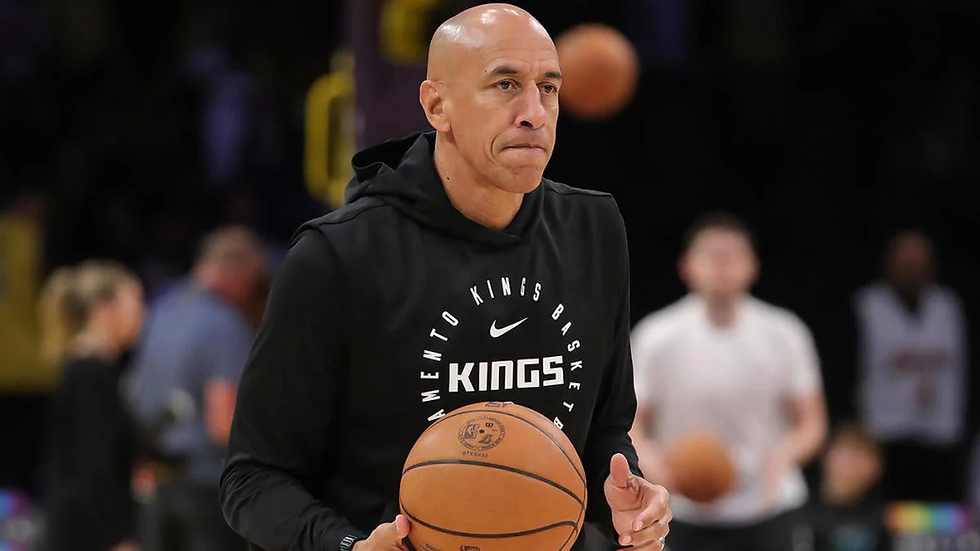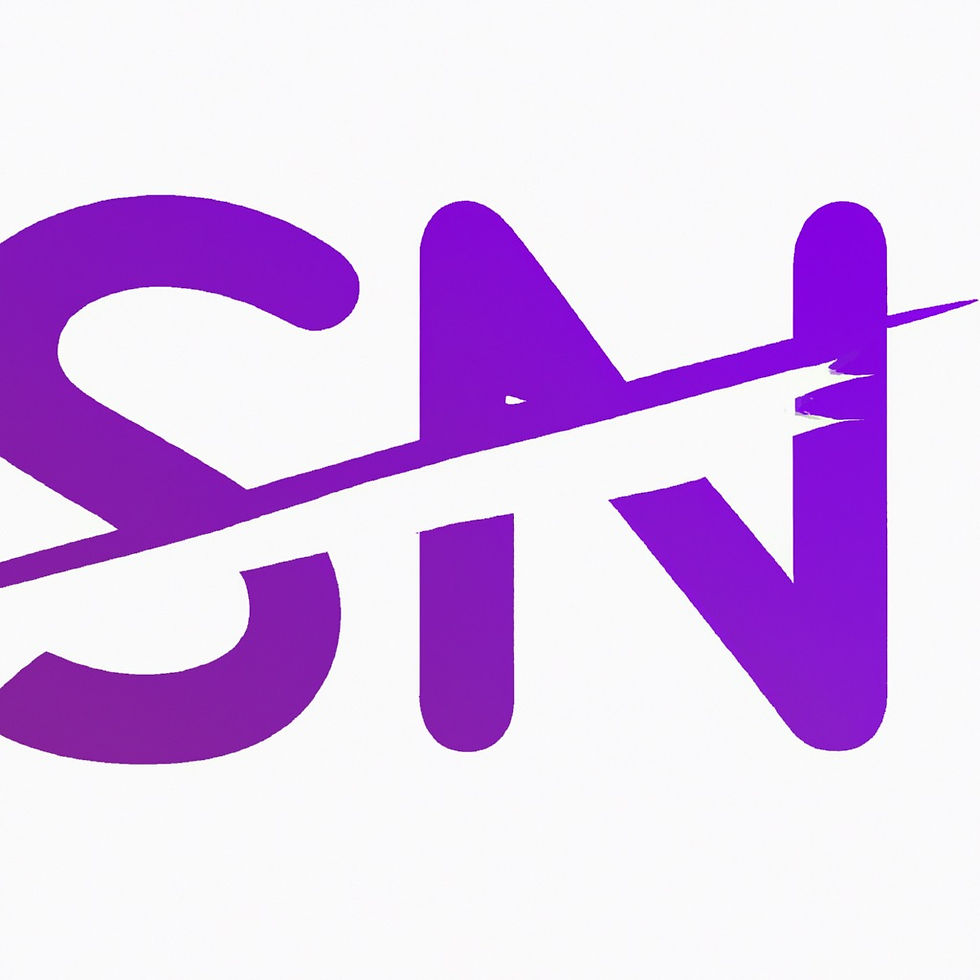Meet The NBA's Newest Coaches: What Do We Know
- Joel Piton
- Sep 9, 2025
- 5 min read
The NBA coaching carousel never stops spinning. Every season, a handful of teams hand the keys to a new voice on the sidelines—some familiar faces with years of experience, and others relatively unknown before making their first leap into the spotlight. Whether your favorite team just swapped out its head coach or you’re simply tracking league-wide trends, we're here to brief you on who these new leaders are. After all, a coach’s philosophy, personality, and decision-making can shape everything from player development to playoff aspirations.
Let's look at the league’s five newest head coaches and peer into a snapshot of their basketball backgrounds, coaching styles, and what their arrival means for their respective franchises. If your team is one of the clubs turning the page with a new leader, this is your chance to learn exactly what kind of future they’re steering toward.
Doug Christie — Sacramento Kings

A 14-year NBA veteran and former All-Defensive Team guard, Doug Christie built his reputation as a gritty, hard-nosed player who made life miserable for opposing wings. That same edge has carried into his coaching career. After four years as an assistant in Sacramento, Christie was thrust into the head chair last season when Mike Brown’s tenure ended abruptly. The results? A respectable 27–24 record as interim, good for fourth in a tough Pacific Division—far from perfect, but a strong showing for a rookie coach handed the keys midseason.
Christie now inherits the chance to fully imprint his identity on a Kings squad rebuilding without De’Aaron Fox and centered on Domantas Sabonis. His defensive mentality could be exactly what Sacramento needs to transform from playoff hopeful to consistent threat in the West. The growing pains will be there—rotations, late-game decisions, and system tweaks—but Christie is no stranger to adapting quickly. If he can translate his voice and leadership into stability, the Kings may finally find the defensive backbone they’ve lacked for years.
Mitch Johnson — San Antonio Spurs

Basketball has always been in Mitch Johnson’s blood. The son of two-time All-Star John Johnson, Mitch carved his own path as a high school champion in Seattle before becoming a four-year starter at Stanford, where his defensive intensity defined his game. After stints in the NBA D-League and overseas, Johnson shifted gears into coaching, first with AAU squads and then at the University of Portland. His rise accelerated when the Austin Spurs hired him in 2016, a move that quickly put him on Gregg Popovich’s radar. For the past five years, Johnson has been Popovich’s right-hand man, absorbing every nuance of the Spurs’ culture.
When Pop suddenly retired, Johnson was the natural successor. His approach blends the Spurs’ timeless values—player development, discipline, and accountability—with his own wrinkles, like increased tempo and perimeter shooting. What makes him stand out is his ability to relate to players; he’s been where they are, and his trust-building skills resonate. San Antonio’s young core, headlined by Victor Wembanyama, is set up for success under Johnson’s guidance. If continuity is key, then the Spurs are in good hands—he’s the bridge between Pop’s dynasty and a new era.
Jordan Ott — Phoenix Suns

Jordan Ott’s climb through the basketball ranks has been nothing short of remarkable. A Michigan State alum, Ott first made his mark as a video coordinator and sports management assistant for Tom Izzo’s Spartans before carrying that skillset to the NBA. The Atlanta Hawks took notice in 2013, with then-head coach Mike Budenholzer valuing Ott’s meticulous film work. From there, Ott quickly carved a reputation as a sharp basketball mind, earning a spot as an assistant coach with the Brooklyn Nets in 2016. Under the guidance of Kenny Atkinson and later Steve Nash, Ott sharpened his understanding of modern spacing, tempo, and player development, wits he carried into future stints with the Lakers and Cavaliers.
Now, after a decade of apprenticing under elite basketball minds, Ott finally gets his shot as head coach of the Phoenix Suns. The question is, what type of coach will he be? Will he lean on Atkinson’s high-paced, spacing-heavy approach, or echo Budenholzer’s three-point emphasis and defensive discipline? With a roster still in flux and plenty of young players to mold, Ott will have the freedom to put his stamp on the franchise. One thing’s clear: he’s overqualified for the opportunity, and now it’s time to see what he can do with the reins.
Tuomas Iiasalo — Memphis Grizzlies

Hailing from Finland, Tuomas Iisalo is one of the most accomplished international coaches to step into an NBA head coaching role in recent years. A 14-year pro as a forward/guard, Iisalo’s playing career was defined by leadership, capped with a Finnish Cup title in 2009. Even then, coaching was in his blood—teammates described him as a “natural born leader” often guiding younger players into dependable teammates. After retiring in 2014, Iisalo transitioned seamlessly into full-time coaching, where his resume exploded: EuroCup champion with Paris, French League Cup winner, two-time Bundesliga Coach of the Year, and Champions League Coach of the Year within three years.
Iisalo’s tactical style is rooted in pace, spacing, and defensive precision. His teams thrived on exploiting mismatches and playing disciplined, high-IQ basketball. During his lone season as an assistant in Memphis, he made an immediate impression and brought his voice and vision to the forefront. Now, with Taylor Jenkins stepping aside, Iisalo has the chance to elevate the Grizzlies into their next era. His proven ability to build and adapt rosters overseas suggests Memphis fans may be watching the beginning of something special.
David Adelman — Denver Nuggets

Son of legendary coach Rick Adelman, David Adelman has basketball running through his veins. While many questioned whether he could live up to the Adelman name when he was suddenly thrust into the interim role last season, his resume proves he’s put in the work. Adelman began coaching at just 21 years old, returning to his high school alma mater immediately after finishing his collegiate career at Southern New Hampshire. From there, he cut his teeth at the grassroots and developmental levels before stepping into the NBA alongside his father in Minnesota in 2011.
Over the next decade, Adelman soaked up knowledge under coaches like the former-Rick Adelman, Flip Saunders, Sam Mitchell, Frank Vogel, and most recently Mike Malone—who kept him on as his lead assistant for eight seasons. That apprenticeship paid off with a championship ring in 2023, but also molded Adelman into a steady, detail-oriented coach who thrives on preparation. Now, with the keys to the Nuggets in able hands, Adelman faces the challenge of proving he’s more than just a legacy hire. If his 23 years of coaching experience are any indication, Denver fans should expect a disciplined, well-prepared team that reflects his deep basketball lineage.
Coaching hires are always a gamble. For some teams, these new leaders could be the missing piece that elevates a roster from a struggling, rebuilding experiment into a legitimate contender. For others, the experiment may fizzle out under the bright lights, with costly mistakes made on the biggest stage. That’s the beauty and the risk of the NBA coaching carousel—every fresh start carries both promise and uncertainty, especially when it comes to coaches who've never done it at this level before.
But everyone coach starts somewhere.
Whether these five names are in the league for the long haul or footnotes in basketball history, one thing is certain: we'll be watching it all—and they'll need all the luck they can muster to lift these franchises to title berths.
Need more hoops coverage to carry you through the offseason? Look no further. Stay tuned to Sportz Nation for your NBA news, breakdowns, and analysis as tip-off draws closer.

Thanks for reading!
Joel Piton



Comments